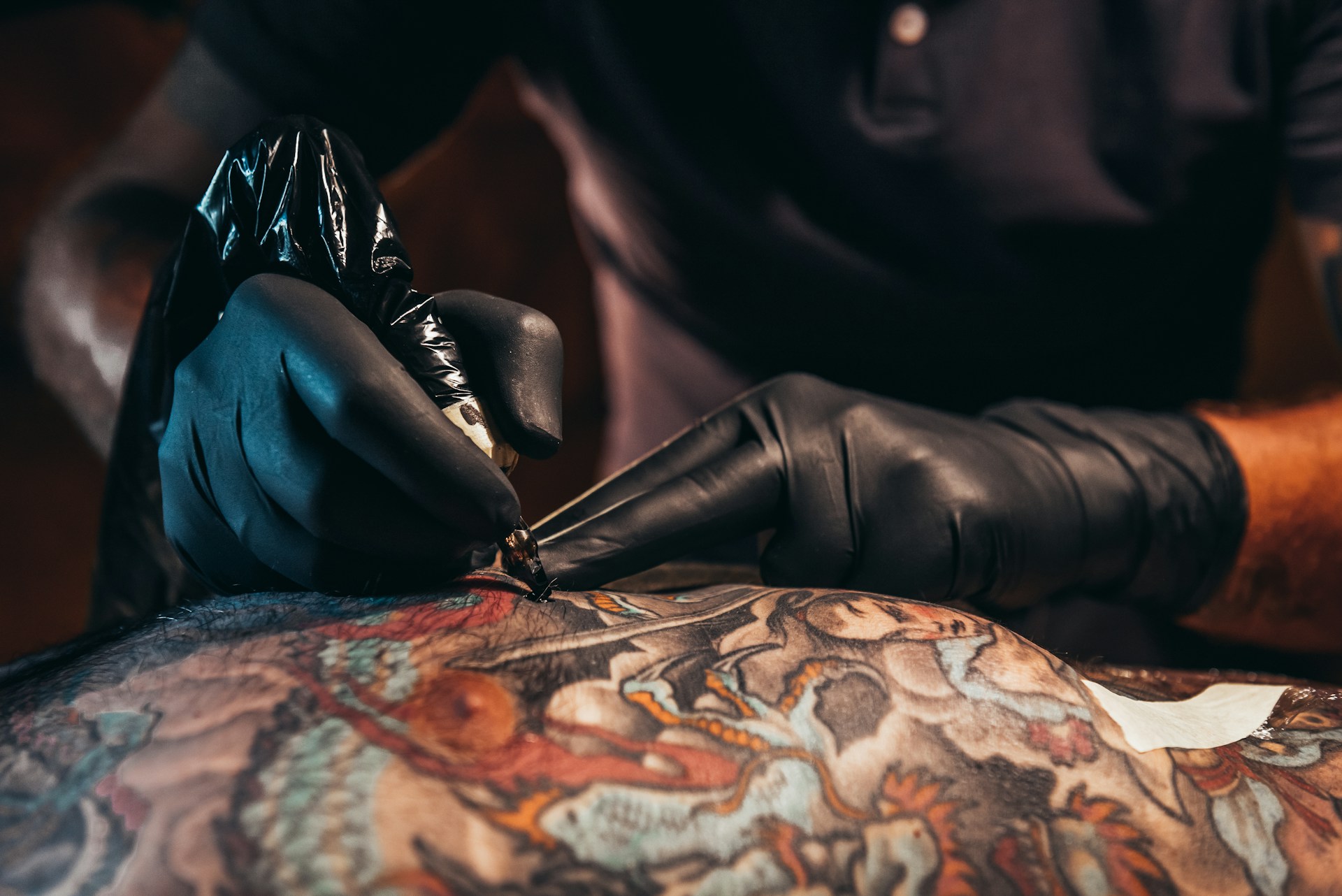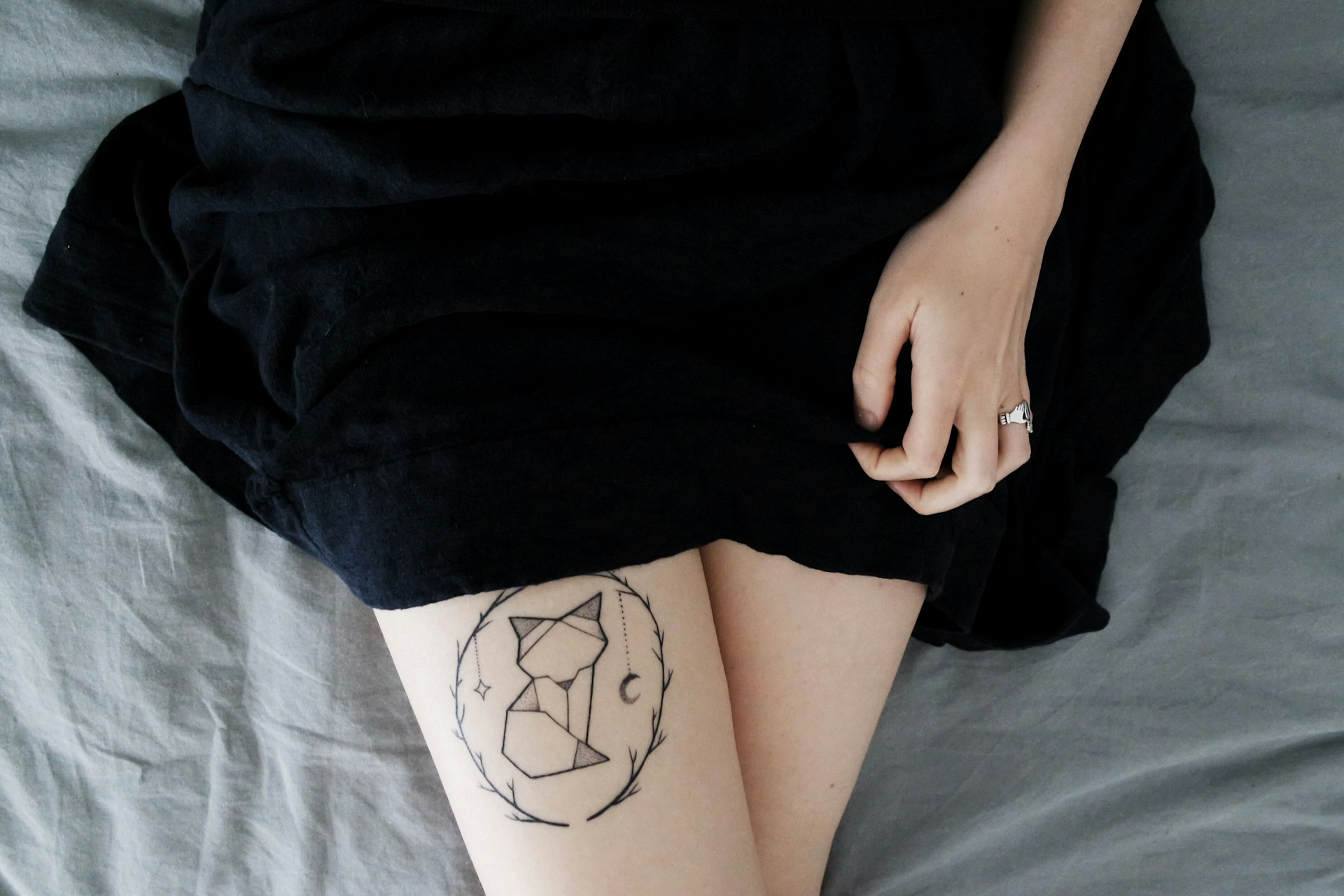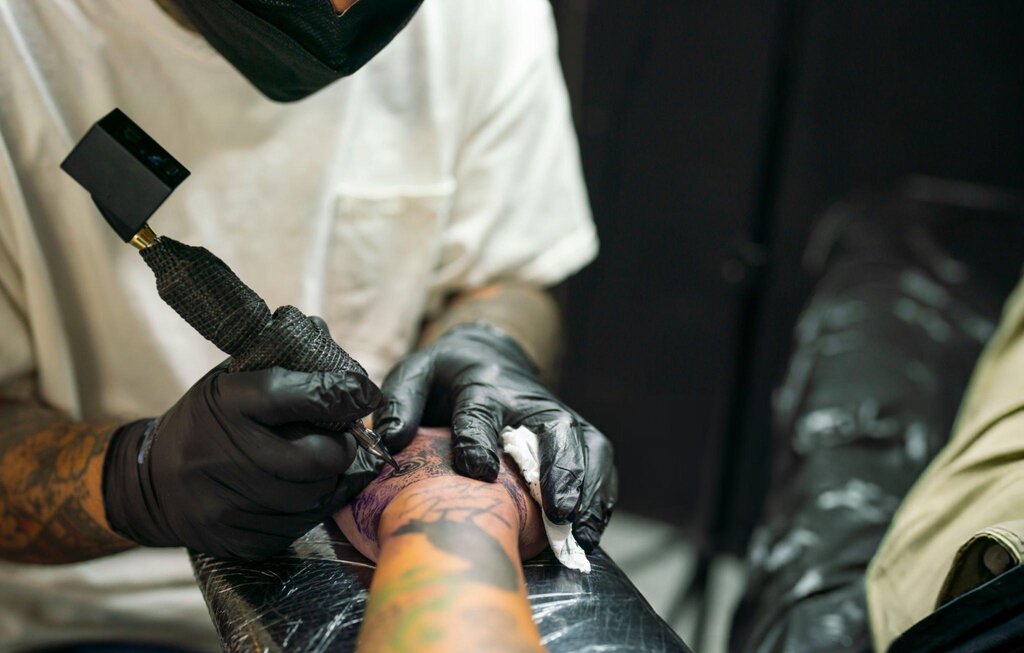Taking care of your new tattoo is key to keeping that fresh ink looking vibrant and healthy. Picture your skin as a canvas; just like any artwork, the canvas needs proper care to preserve its beauty. Tattoo aftercare is all about helping your skin heal and adapt, which is why it’s important to pay attention to how it reacts post-inking. Irritation can crop up as your tattoo heals, and knowing how to handle it can make all the difference.
Skin irritation isn’t unusual when you’re sporting a new tattoo. It’s your body’s response to the changes happening on your skin. Recognizing and addressing these signs promptly can help you maintain both comfort and the quality of your tattoo. Understanding some straightforward steps for treatment at home or knowing when to seek advice from your tattoo artist aids in a smoother healing journey.
Identifying Tattoo Skin Irritations
Spotting the signs of irritation early on can save you a lot of discomfort. Tattoo skin irritations might appear as redness, swelling, or itchiness around the inked area. You might even feel a warm sensation when you touch it. These reactions are fairly common as it’s part of the healing process, yet they shouldn’t be ignored.
There might be times when the irritation is more than just normal healing. Here’s how you can tell the difference:
- Mild redness and itching are normal.
- Persistent pain and swelling may need attention.
- If the area feels hot to the touch for an extended period, consider seeking professional advice.
- Watch out for any unusual discharge or if the irritation doesn’t start settling after a few days.
Knowing when to consult a professional is crucial. While minor irritation can be addressed with simple home care, more severe symptoms might require you to reach out to your tattoo artist or a healthcare provider. They can provide guidance and ensure the healing process goes smoothly. As you learn to spot these signs, you’ll become more confident in determining when everything’s on track or if it’s time to seek advice.
Immediate Steps to Alleviate Irritation
Acting quickly when you notice irritation can ease discomfort and promote healing. Here’s what you can do right away:
- Clean Gently: Use a mild, fragrance-free soap to wash the affected area. Pat it dry with a clean, soft towel. Avoid rubbing, as this can aggravate the skin.
- Apply Recommended Moisturizers: Opt for tattoo-specific ointments or lotions that are fragrance-free and hypoallergenic. These help keep the skin hydrated without causing further irritation.
- Avoid Tight Clothing: Ensure that the fabric around the tattoo is soft and doesn’t rub against it. Loose clothing allows the skin to breathe and reduces friction.
Taking these initial steps helps soothe the area and prevent further irritation. By maintaining this care routine, you’re giving your tattoo the best chance to heal without complications. It’s all about being gentle yet diligent, providing your fresh artwork with the care it deserves.
Long-Term Care Tips
Once you’ve addressed any immediate irritation, it’s time to think about long-term care. Keeping your tattoo clean and moisturized is probably the best thing you can do for it. Make sure to wash it daily with a mild soap, and always apply a fragrance-free moisturizer afterward. This helps maintain hydration and prevents the skin from drying out or forming scabs.
It’s smart to shield your new tattoo from the sun. Sun exposure can fade the colors and cause further irritation. When you know you’ll be outside, cover the tattoo with clothing or use a recommended sunscreen once healing allows. Also, stay away from pools or hot tubs until your artist gives you the green light, since chlorine and bacteria can cause issues.
Watching your tattoo as it heals is equally important. Keep an eye out for any prolonged irritation. If something doesn’t seem right after taking all these precautions, it’s a good idea to connect with a professional to make sure everything’s in good shape.
When to Contact Your Tattoo Artist or Healthcare Professional
Knowing when to reach out for help can be a game-changer in how your tattoo heals. Be sure to contact your artist if you notice any significant problems. Here’s a quick list of symptoms to watch for:
- The tattoo area emits an unusual discharge, or there’s a foul smell.
- Pain and swelling persist despite consistent aftercare.
- Red streaks appear moving out from the tattooed area.
- Symptoms of a fever develop alongside other issues.
Sometimes, it’s a sign you need to engage a healthcare professional. Don’t hesitate if you have concerns. Your artist is also a great resource, as they have the expertise to suggest solutions or direct you to medical care if needed.
Smooth Path to Healed and Vibrant Tattoos
Proper aftercare paves the way to a tattoo that stays as stunning as the day you got it. By being proactive with your care routine, you’re setting up your ink for success. The more informed and attentive you are about these practices, the better your tattoo will look over time.
Remember, a little care goes a long way. Through consistent cleaning, moisturizing, and protection, your tattoo will heal beautifully. Staying aware of what your skin needs ensures it remains a piece of art you’ll cherish for years. Keep these tips in mind, and you’ll be on track for a healthy, vibrant tattoo.
When it comes to ensuring your tattoo heals properly and looks incredible for years to come, aftercare is crucial. When you’re seeking the best tattoo shops in Buffalo, consider making Lucky Deville Tattoo Co your choice for expert care and stunning artistry. Explore how our services can help you achieve and maintain beautiful, vibrant tattoos.



